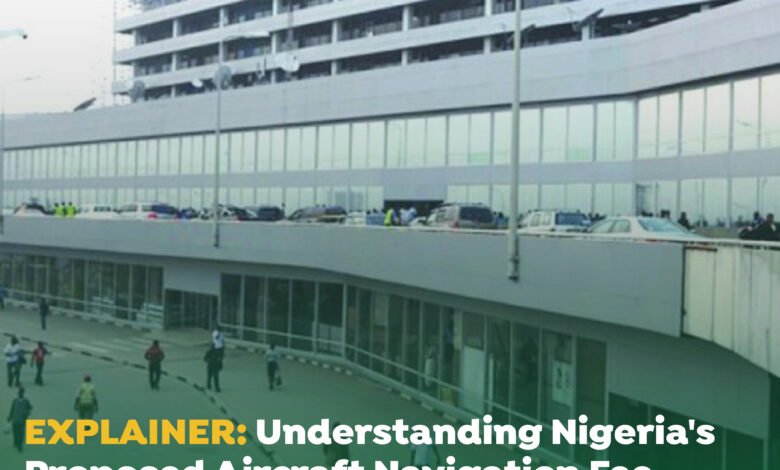
The Nigerian government, through the Nigeria Airspace Management Agency (NAMA), has proposed a significant increase in aircraft navigation fees and charges, effective September 1st.
The Managing Director of NAMA, Mr. Umar Farouk, disclosed this during the 28th edition of the League of Aviation and Airport Correspondents (LAAC) Conference, held on Friday, July 26 in Lagos.
While some have hastily labeled this move as another anti-people policy, industry experts view it as a bold step towards revitalizing the country’s aviation industry.
What are Navigation Fees?
Navigation fees are a crucial element of operational costs, managed by Air Navigation Service Providers (ANSPs). These fees fund air traffic control services, navigational aids, and essential flight safety measures.
They are calculated based on factors like distance flown, aircraft weight, and occasionally, time of day or year.
A Bold Step
Experts consider this move a bold step towards revitalizing Nigeria’s aviation industry, which has yet to reach its full potential.
The increased fees aim to recover costs, boost revenue for NAMA, and align Nigeria’s charges with international standards, last reviewed in 2008.
Price Increases
The proposed changes, affecting aircraft operators, not passengers, will see en-route navigation charges rise from N2,000 to N18,000 per flight, and terminal navigation charges increase from N6,000 to N104,000 per flight. Extension of service hours will also be reviewed from N50,000 to N450,000 per extension. These increases will generate significant revenue for NAMA, enabling the agency to cover operational costs, invest in infrastructure development, and enhance air navigation services.
Positive Impacts
This move is expected to have a positive impact on the industry, attracting investors and encouraging local airline operators to boost their capacities. The government’s commitment to developing Maintenance Repair Organization (MRO) facilities will enhance the industry’s competitiveness, with international investors already expressing interest.
Global Precedent
Aircraft navigation fees and charges are a significant revenue source for aviation agencies worldwide. The Federal Aviation Administration (FAA) in the United States generates millions of dollars annually from navigation fees, while the UK’s National Air Traffic Services (NATS) charges airlines for air traffic control services, contributing to the country’s aviation revenue.
Way Forward
Experts recommend robust stakeholder consultations for a smooth implementation of the proposed changes.
They also emphasize the need for investment in essential infrastructure, public-private partnerships, and promoting Nigeria as a travel destination to stimulate economic growth.
The proposed increase in aircraft navigation fees and charges is a significant step towards revitalizing Nigeria’s aviation industry.
However, it’s crucial to address underlying challenges and ensure effective utilization of the generated revenue.





